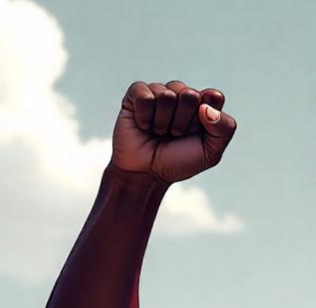
On September 16, California Governor Gavin Newsom signed a bill officially apologizing for slavery and the detrimental effects of the California legislature on African Americans. The apology was commemorated on a plaque in California’s State Capitol building. The California Legislative Black Caucus(CLBC) proposed the bill, and seven of the 12 members were with Newsom at the signing ceremony.
The newly admitted Assembly Bill No. 3089 states California apologizes for the “perpetration of gross human rights violations and crimes against humanity on African slaves and their descendants, and how California laws and policies that continue to disproportionately and negatively affect African Americans as a group and perpetuate the lingering material and psychosocial effects of slavery can be eliminated.”
The apology was one of 14 bills the CLBC presented to Newsom in their 2024 CLBC Reparation Priority Bill Package.
The CLBC created the package from a two-year, 1,600-page study executed by the California Reparations Tasks Force. The research examined how California laws have harmed African Americans through generations.
California was admitted in 1850 as a free state, but it still permitted slavery and fugitive slave laws to be enforced, along with its own discriminatory policies. Wrongfully seized land, job and healthcare discrimination, over-incarceration, and property and business devaluation were evidence of ruinous systemic racism.
“The nation is waiting for us to lead,” said Dr. Shirley Weber, a CLBC member and The Secretary of State. “And as California always does, we will lead in addressing a delayed justice called Reparations.”
Of 14 bills proposed, four were passed, encompassing the apology. One bill expands the CROWN Act, which protects Black Californians who wear natural or protective hairstyles like afros or box braids, to competitive sports. The other two bills aim to correct book banning within prisons and food injustice in underserved communities.
Some CLBC bills excluded from the priority package were passed as well. SB 1348 will introduce “California Black-Serving Institutions”, a title given to universities that offer supplementary aid to Black students.
In a statement, Newsom wrote, “Building on decades of work, California is now taking another important step forward in recognizing the grave injustices of the past – and making amends for the harms caused.”
However, some consider the enacted bills passive compared to the vetoed ones. A notable upsetter was the veto of SB 1050. It would have allowed Black Californians to request monetary or land reparations if their ancestors’ property were wrongfully seized. Newsom vetoed it, saying California does not have facilities for its implementation.
The Coalition for a Just and Equitable California, a reparations advocacy organization, wrote in a statement, “The veto sends a message that the state is unwilling to confront the full brea[d]th of its historical injustices.”
Monetary reparations have been requested for prejudiced legislation that sustained the racial wealth gap.
California’s Reparations Task Force calculated descendants of enslaved Black Californians have been deprived of over $500 billion. This does not comprise wealth lost to the institution of slavery itself, only the laws effectuated after it.
Despite this, financial reparations are still highly contested. In 2022, the UC Berkeley Institute of Governmental Studies discovered that 60 percent of California voters believe slavery affects Black Californians today. Regardless, 59 percent oppose the idea of cash reparations.
California’s Reparations Task Force has recommended other forms of compensation such as free college tuition and no-interest housing loans.
California has made some steps in reparations for descendants of enslaved African American Californians.
